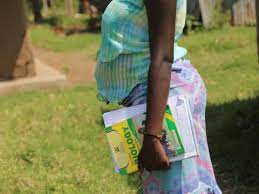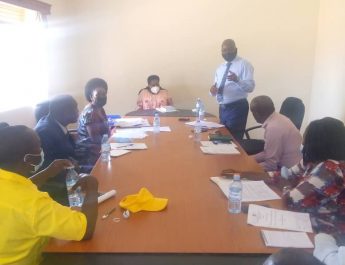Uganda has again been named one of six African countries that account for more than half of all malaria cases in the world, according to the 2019 World Malaria report released yesterday.
The 2018 report released last year had also shown that Uganda accounted for 4 per cent of the world’s malaria cases, making it to the top five countries responsible for nearly half of all malaria cases worldwide.
Other countries are Nigeria, the DR Congo, Côte d’Ivoire, Mozambique and Niger accounting for 25 per cent, 12 per cent, and the rest four per cent each while Uganda accounted for five per cent.
“The incidence rate of malaria declined globally between 2010 and 2018, from 71 to 57 cases per 1,000 population at risk. However, from 2014 to 2018, the rate of change slowed dramatically, reducing to 57 in 2014 and remaining at similar levels through to 2018,” the report by World Health Organisation (WHO) reads in part.
The report also shows that globally, the malaria burden last year was the same as that in the previous one in all other countries, apart from Uganda and India, where there were reported reductions of 1.5 and 2.6 million malaria cases, respectively.
Uganda also had the highest percentage of the population at risk of malaria sleeping under long-lasting insecticidal nets (LLINs) among high burden to high impact countries at 80 per cent while Nigeria had the lowest population of the same at half of the former.
However, Uganda was named among countries with 30 per cent or less of pregnant women receiving three doses of intermittent preventive treatment pregnancy (IPTp3) in 2018. Others are Cameroon and Nigeria.
Dr Tedros Adhanom Ghebreyesus, the director-general WHO, said the malaria scourge continues to strike hardest against pregnant women and children in Africa.
“We must all do more to protect the most vulnerable in the fight against a disease that continues to claim more than 400,000 lives every year. Malaria in pregnancy compromises the mother’s health and puts her at greater risk of death,” Dr Ghebreyesus warned.
Current upsurge
The report comes at a time when the country is faced with an upsurge of malaria, which the ministry has attributed to heavy rain.
In a recent interview with the Daily Monitor, Dr Jimmy Opigo, the programme manager at Malaria Control Programme at the Ministry of Health, said the upsurge started in August 2018 before peaking in June this year. “The second reason is, the nets we gave out in 2017 are worn out and lost in most homes with net coverage falling below public health coverage levels,” Dr Opigo said, adding that the government currently spends $100m (about Shs370b) due to the current upsurge.
West Nile Sub-region has got the highest cases and deaths per population resulting from refugees, low mosquito net use, poor housing, sleeping in groups, poor care-seeking behaviour, and low access to care, among others.



